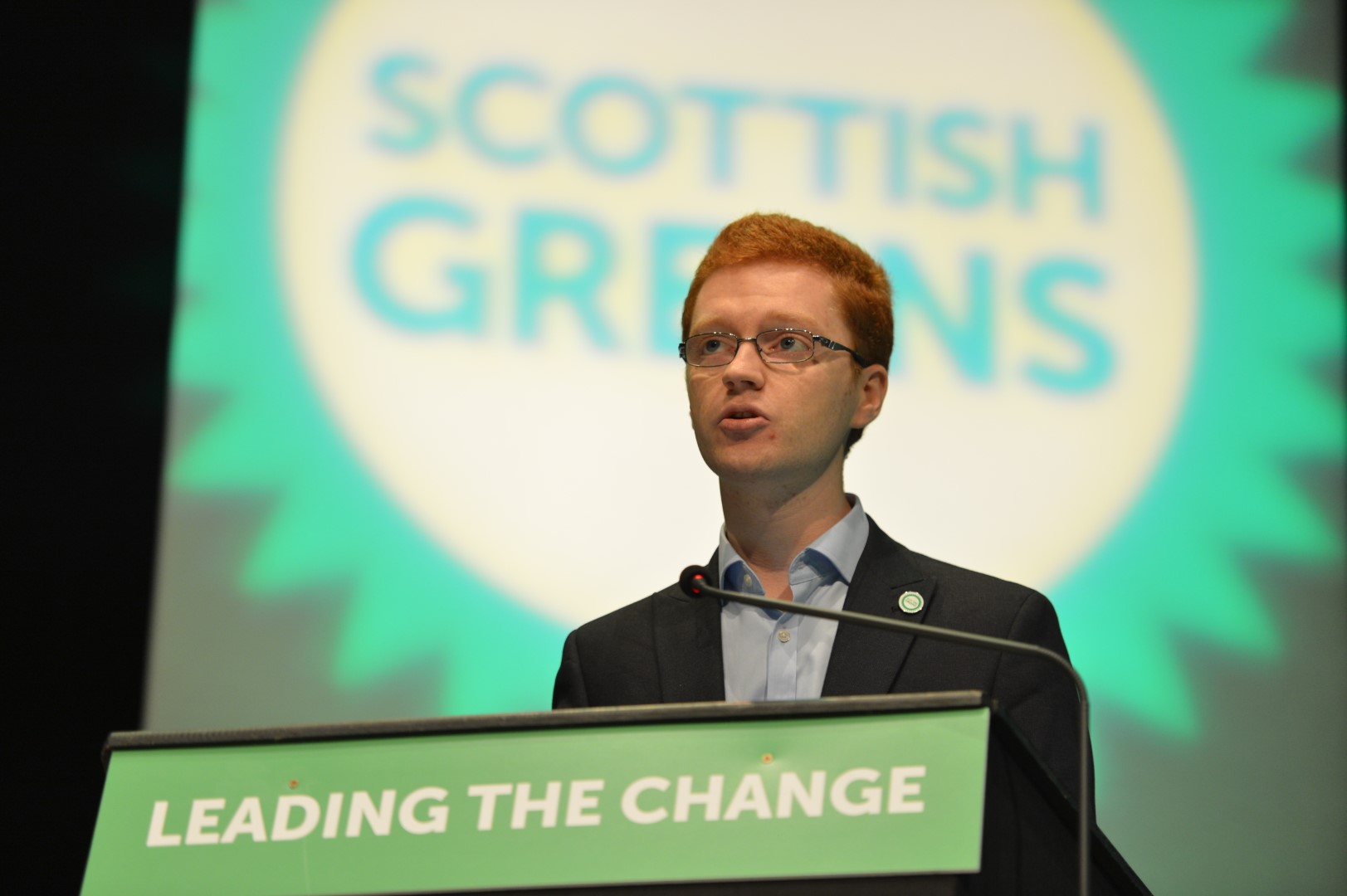West Scotland Scottish Green MSP Ross Greer has spoken in favour of a bill which would create 200 metre safe access zones, or ‘buffer zones’ to stop anti-abortion campaign groups from protesting outside hospitals or other abortion service providers.
The legislation, proposed by Green MSP Gillian Mackay, was backed at Stage 1 by 123 MSPs across all political parties represented in Holyrood, with just one MSP opposed. Stage 1 is the point at which MSPs vote on the general principles of a bill. It will now move to Stage 2, where potential amendments can be brought forward, before a final vote at Stage 3, after which it will become law.
Ross Greer, a co-author of the Scottish Parliament Health Committee’s report endorsing the general principles of the bill, spoke on behalf of the Green MSPs during the Stage 1 debate, saying: “Access to healthcare is a fundamental right. However, at this point in time, a woman’s right to access reproductive healthcare in Scotland is being compromised by anti-abortion protests. Anyone is free to hold an anti-abortion point of view — freedom of thought is absolute — but our right to manifest our views is not absolute and, in this case, does not trump a woman’s right to access healthcare.
“Despite the Abortion Act 1967 having come into force across Great Britain almost 60 years ago, this is still a deeply politicised area of healthcare. The organisations which put together anti-abortion protests in Scotland have been repeatedly found to spread dangerously false claims, including that abortion increases the chance of breast cancer, which is utterly false.
“This bill is an opportunity for Parliament to listen to women who have sought abortion and have been profoundly affected by protests, and to the other patients, service users, families, relatives, chaplains, hospital staff and others who have also been affected. As Gillian Mackay and others have said, we are not debating the principle of abortion, but seeking to protect those who must have the fundamental right to access reproductive healthcare without obstruction.”
The Green MSP’s speech was particularly commented on for arguing from a Christian perspective against those protesting. Mr Greer, who is a member of the Church of Scotland, said: “Not all of the people at such vigils are Christians, but the vast majority are, as are those who gave evidence to us, and it is important to understand the motivation of those engaging in behaviour that we are seeking to prevent or displace. Bishop Keenan, from the Catholic church, explained the importance of prayer to Christians—I agree—but his evidence and that of others strayed between prayer and preaching, which engage different rights and different questions of faith.
“Christians are called to spread what we consider to be the good news, but we are explicitly not called to pray performatively in public. Jesus is really specific about that. Just before introducing the Lord’s prayer”.
Mr Greer added: “And when you pray, do not be like the hypocrites, for they love to pray standing in the synagogues and on the street corners to be seen by others. Truly I tell you, they have received their reward in full. But when you pray, go into your room, close the door and pray to your Father, who is unseen. Then your Father, who sees what is done in secret, will reward you.”
“When Jesus said that those who pray for others to see them have already received their reward in full, he was making the point that such prayer is directed towards those around them, not towards God. The reward is the attention of other people, and he condemns that.
“The point about whom prayer is directed towards is a critical legal question. Praying to God, either individually or as a group, does not require proximity to what or whom is being prayed for.
“I am not saying that proximity is never important and has no value, but, in this case, proximity is clearly intended to influence the outcome—in other words, to persuade or intimidate women into not having an abortion. At that point, you are clearly impacting someone else’s ability to exercise their rights. Your rights, therefore, need to be balanced against theirs. Quite obviously, you cannot access abortion services somewhere other than at an abortion service provider, but you can pray, protest and preach elsewhere, including just up the road.


